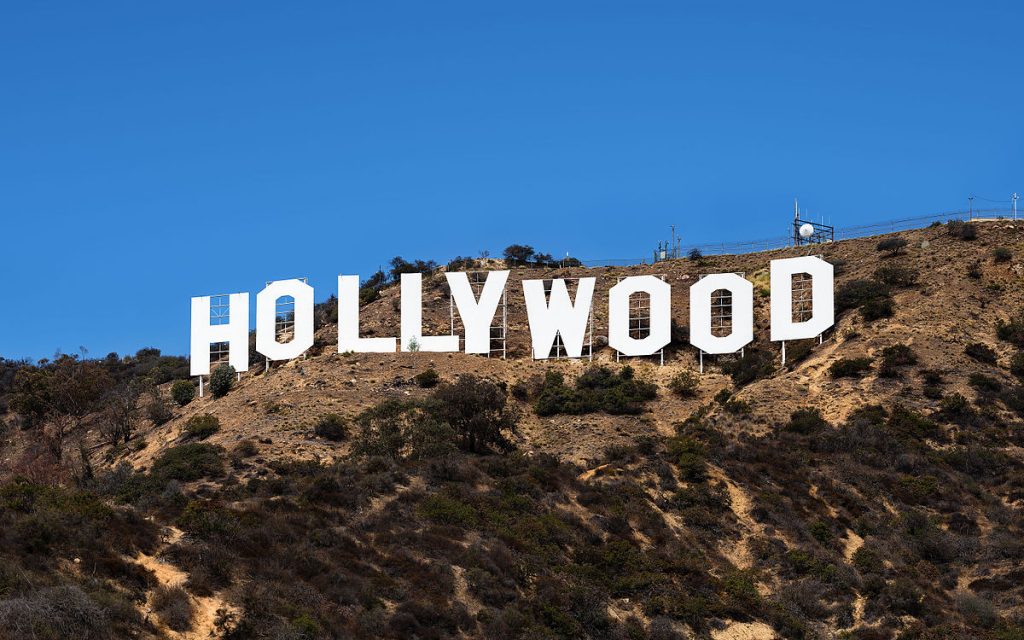Welcome to Hollywood – Shedding the Casting Couch Culture
By: April Slusser
Bill Cosby, Harvey Weinstein, Woody Allen, Roger Ailes, Casey Affleck, Roman Polanski, Charlie Sheen, Mike Tyson, Alfred Hitchcock, Sean Penn, Marlon Brando, Sean Connery, Bill Murray.
The general population may not be aware of what this group of men have in common: collectively, they’ve all been accused of sexual assault and/or harassment, and surprisingly most of them have come out of it relatively unscathed.
If you were to ask any random man on the street what his thoughts were regarding sexual assault and sexual harassment were, chances are he’d vocalize his disdain for it. Or at least you may like to think that’s the reaction. In a study done in 2015 by the University of North Dakota, out of a group of 73 straight male students, one in three reported that they would force a woman to have sex if they knew they could get away with it. According to the report, 31 percent of the men surveyed said they would force a woman to have sex “if nobody would ever know and there wouldn’t be any consequences.”
Now, 73 subjects is hardly indicative of the entire population of men, however we can’t ignore the 31% of the respondents who stated they would rape someone if they had the opportunity and if they knew they could get away with it. The study stated,
“Specifically, when survey items describe behaviors (i.e., ‘‘Have you ever coerced somebody to intercourse by holding them down?’’) instead of simply label them (i.e., ‘‘Have you ever raped somebody?’’), more men will admit to sexually coercive behaviors in the past and more women will self-report past victimization (Koss 1998). Given that rape is defined as intercourse by use of force or threat of force against a victim’s wishes, this discrepancy suggests that at least some men who rape do not seem to classify their behaviors as such.”
Layman’s terms? A majority of males surveyed not only fail to understand what constitutes sexual assault, but would commit it if guaranteed impunity. Failing to realize their own ignorance perpetrates the violence and misunderstanding of sexual assault as a whole.
In a Master’s thesis presented to the University of Tennessee, Chattanooga in 2009, Courtney Crittenden referred to the idea that survivors of sexual violence and harassment are commonly blamed for the harm they supposedly cause to a perpetrator’s career by the implication that claims are easy to file but difficult to defend. Beliefs that sexual harassment claims can mean the end of the alleged harasser’s career while having no impact on the alleged victim are harmful because they indicate that sexual harassment is potentially more traumatic for the offender than the victim and greatly minimize the harm and trauma felt by the victim. These ideas are harmful because they negate the difficulty and resistance most women face when filing claims of sexual harassment.
Regarding current events, most notably the news regarding Harvey Weinstein’s multiple and horrifying transgressions against at least dozens of women, various communities treat sexual assault not only as something unpleasant but also as wholly unavoidable. The phrase, “Welcome to Hollywood” comes to mind. This evokes images of the stereotypical “Casting Couch” culture that Hollywood perpetuates, young women falling victim to studioheads, directors, agents who abuse their power in an attempt to exchange auditions, roles, and notoriety for sexual favors. Harvey Weinstein in particular and his apparent intimidation tactics, coercion, and in some cases even rape of actresses and employees is just the latest perpetrator in a long history of women in the industry being abused, bullied and exploited by powerful men.
The Washington Post quoted Ben Affleck in a recent article regarding Weinstein’s behavior, with Affleck having this to say,
“This is completely unacceptable, and I find myself asking what I can do to make sure this doesn’t happen to others, we need to do better at protecting our sisters, friends, co-workers and daughters. We must support those who come forward, condemn this type of behavior when we see it and help ensure there are more women in positions of power.”
The same Washington Post article quoted three women who have been assaulted or harassed by the actor, including actress Hilarie Burton, Annamarie Tendler, wife of comedian John Mulaney, and entertainment news anchor Anne-Marie Losique.
I bring up Ben Affleck because while he may speak out against the abuse and exploitation of women publicly, him and longtime friend and business partner Matt Damon have been accused several times over of overlooking Weinstein’s behavior, as well as tolerating the abuse, they’ve been known to make jokes about it and understate how severe the problem actually was. It seems as though while the majority of men are quick to denounce the actions of others, quite a few of these men may perpetuate and tolerate the same behavior they condemn; whether it be intentional or not.
As of now, there are 47 women on record stating that they experienced Weinstein’s unwanted advances and toxic behavior firsthand, and of those 47, Rose McGowan has become the most outspoken. Just a few short weeks ago, The New York Times reported that McGowan had received a $100,000 payment from Weinstein in 1997; the settlement included a confidentiality agreement prohibiting her from discussing the incident, which allegedly occurred in a hotel room at the Sundance Film Festival. McGowan posted a series of tweets confronting the hypocrisy of other male power players in the film industry and addressing the other instances of various sexual abuse making and emphasizing the point that Weinstein is not the only abuser, that sexual abuse is rampant in Hollywood and that men need to hold each other accountable. She has since been subjected to a temporary Twitter ban,Twitter alleging she violated community and privacy standards which prompted a #womenboycotttwitter movement when it was felt by McGowan and her followers that Twitter was attempting to silence victims.
This prompted another online movement, the trending topic of “#metoo” on Twitter, Facebook and Instagram, among other outlets. USA Today reported that actress Alyssa Milano helped #MeToo go viral with a tweet asking women who have been harassed or assaulted to reply or tweet “me too” to “give people a sense of the magnitude of the problem.” However, the #metoo movement didn’t start out as a response to the Harvey Weinstein. It originally started about 10 years ago by activist Tarana Burke, specifically to help young women of color from low wealth communities who have been sexually abused, assaulted, exploited or harassed.
In response, the men of Twitter decided to use the hashtag, “How I Will Change” as an effort to identify and recognize the harmful behavior that men unknowingly tolerate and perpetuate. One tweet in particular, posted by Benjamin Law (@mrbenjaminlaw) struck me. The tweet stated, “#HowIWillChange: Recognise I don’t need to be a perpetrator to be a bad guy. Questioning harassment, not doing anything about it—all as bad.”
Briefly browsing the topic on Twitter does a lot to restore some of my faith in humanity as well as men. It proves that men are complicit in the exploitation and subjugation of women sometimes without even realizing it; and identifying what behaviors perpetuate this culture will go a long way in improving the climate for survivors to come forward but also opening up a dialogue criticizing and rectifying seemingly passive sexist behavior. The issue faced by many survivors is the consistent underestimation of the severity of their traumas and disregard for their need for recovery, and societies response to that as a whole is to call into question the survivors integrity, whereas the survivor is a liar until proven honest.
Society as a whole may denounce sexual assault generally, but it also often underscores how truly traumatizing it can be for the survivor, as well as failing to truly establish a safe place for survivors after an attack has occurred. It’s viewed as and argued by some that the possibility of a false accusation is somehow more detrimental than the harasser facing severe consequences for his actions.
About April Slusser

April Slusser is currently a Communications Major at University of Michigan-Dearborn. She’s been with WC SAFE since January of 2017 and is passionate about social activism and justice.
